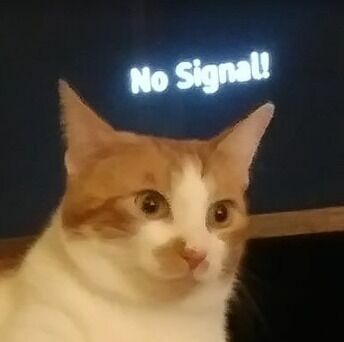Luna?
That’s just Moon in Latin.
True, but it’s also the name of the Roman godess, which does make it allign better with all the other astronomical names.
To be fair, we didn’t know there were more until Galileo showed up late to the party with his telescope.
And technically the Moon is the only Moon. The “correct” term for what’s colloquially called “moon” is “natural satellite”.
A
moonletmoonette is a natural satellite of a moon without being a moon itself. A planet is also a natural satellite of a star. The use of the word “moon” as a common term for natural satellites of planets is well established in professional terminology.What, no.
A moon is a natural satellite. Our moon, Europa, Titan etc. A moonlet is a very small natural satellite. Earhart in Saturn’s orbit for example. A moon of a moon is a moonmoon or subsatellite.
Fair, I messed up the names there. Moonette is the synonym of that that I was thinking of.
But a satellite (natural or artificial) is any object that orbits around a celestial body. The Earth is a satellite just as the Moon is one. Subsatellite is just the satellite of a satellite, but that depends on context. Moons fit that definition, but aren’t usually considered subsatellites because we don’t usually think of planets as the satellites of the Sun that they are.
That’s boring, dry, and overly nonspecific. I refuse to accept it, be more creative.
So? Nova Scotia is just New Scotland in Latin. That’s still the name.
Edit: unless you’re French, then it’s Nouvelle-Écosse
Yes. Also used in other languages like russian.
Also in Spanish
I don’t know what the scientific community’s thoughts on it are, but I like the idea of “moon” being the generic term while Luna is the name of our moon.
Saying “the moon” still works because we only have one.
deleted by creator

If you haven’t read The Last Human by Zack Jordan, I highly recommend it. In between chapters, the reader is treated to excerpts from an Asmovian encyclopedia that explains the rules of the intergalactic society that the sole remaining human, the main character, has to navigate.
As part of joining the trillion-species-strong network, a species must fill out a form to dictate the nouns and adjectives for your species, home star, homeworld, sexual divisions (where applicable), and so on. It’s noted in the book that since there are so many species already assigned values in the database, the encyclopedia warns that names like Earth, dirt, mud, moon, star, sol, and home are already taken, and are constantly rejected in proposals.
That’s a fun theory, but it does ignore that local languages are all different. For example, the name Canada comes from the St. Lawrence Iroquoian word “kanata”, meaning ‘village’ or ‘settlement’. And it was misunderstood as the name of the area.
Many alien species naming their planets after dirt seems likely enough, but their word for it sounding like “Earth” in English is pretty low. We’ve got plenty of variations across languages even on our own planet: https://www.indifferentlanguages.com/words/earth
A bunch of hosers were sittin’ ‘round the fire drinkin’ beers. One of 'em said, “ya know, we should name our country, eh?”
“Oh yah, we should. How ya reckon we should do that?”
“Oh, it’s easy! We take all the letters of the alphabet, write 'em on pieces of paper, and stick 'em all in a hat. Then we draw 'em out and see what our name is!”
“Oh, that’s a great idea! I’ve got some paper right here donchaknow!”
So, they wrote all the letters of the alphabet on pieces of paper and threw 'em in a toque.
“All right, what’s the first letter?”
“C, eh?”
“What’s the next letter?”
“N, eh?”
“What the next letter?”
“D, eh?”
“OK, that seems long enough”
Thank you kind stranger. This will make it even easier to make my favorite “fuck English” joke. https://www.indifferentlanguages.com/words/pineapple
Seriously, virtually everyone calls it some variation of Ananas, but along comes English and they are just like… Hmmm, obviously this should be names Pineapple and we should mock anyone who desires it on a pizza.
In the book, the word you give is the translation into galactic standard, which is one uniform language. Earth would be translated into the same word as soil and dirt, and perhaps a few synnonyms could be pulled before the concept itself was milked dry.
I think the way you would have to handle it is translate the sound of “Earth” to be spelled with the uniform language. Humans borrow words from other languages all the time.
Though the more I think about it, the likelyhood of alien species even communicating with sound isn’t a guarantee either. So whatever universal language would have to be pretty complex, with potentially more than just sound and letter representations.
The book also claims that music is extraordinarily rare, with most species finding rhythm and melody indestinguishable from noise. I think the point is that the galactic consciousness that runs it all universally translates for purposes of intercommunication. What is heard or understood is more the concept of what was said than the phonetic content therein. It wasn’t that such and such syllables made up the word “human,” it was that the concept of human needed a universal concept to tie to the thing itself. For example, a matriarchal insectoid species who canabalizes any mate is known by the concept of “widow” as a species. Not the word, the idea that the galactic mind would push as a conceptual thought in whatever manner of communication a species might communicate in, which itself might or might not be verbal or phonetic.
I guess the meaning of “Earth” would translate to the conceptual thought of “Home Planet”?
If that’s how their language works, then I feel like it must be near impossible to add new vocabulary without stringing multiple concepts together. I’m not sure how you could merge conceptual thoughts together like you can words/sounds. We’d end up on a planet named “Blue, Green, Dirt, Water, Bipedal, Planet” or whatever minimal combination ends up being unique.
Could be an issue for some kind of universal translator that has a hard time with proper boundaries that are also regular nouns.
Also
scientists naming our planet
Terra?
Dirt in Latin.
To be fair, “moon” is pretty cool, it’s just that every other moon now inherits an eponym from OG Moon
What scientist named the earth’s moon?
Moon Moon.
Damnit
AWOOOOOO
It’s Latin designation is ‘Luna’.
‘Selene’ in Greek.
Though, I’m uncertain if OP thought about anything other than Moon.
I think they were asking which scientist assigned those names, implying none did because all those words were assigned by ancient cultures
How did you interpret that from the meme?
Was saying the comment you replied to was in reference to the meme saying scientists named our moon, but it wasn’t scientists
Ahh, that makes more sense. XD
Moon
deleted by creator
The actual term is satellites. Blame media and maybe engineers. People constructed so many manmade ones that natural satellites got the moons rebranding.
How is this getting upvotes? That’s like saying your cow’s name is actually “mammal”. The post was not about a general term to label a group of things.
Can’t vouch for other languages, but at least in Russian, satellite (sputnik) is still in use alongside “moon”
I voted for Mooney McMoonface










